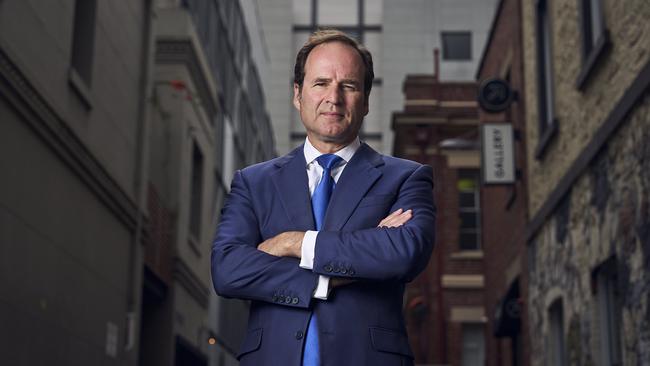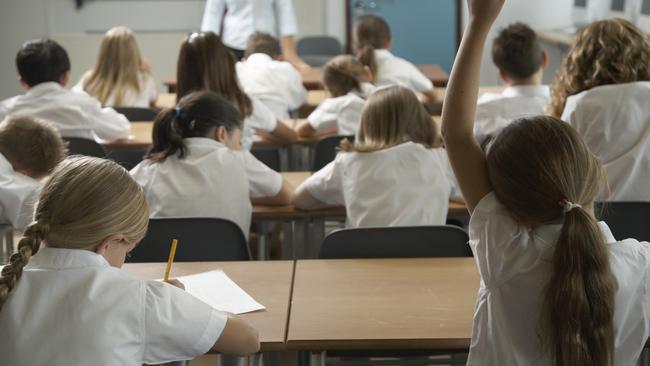Public school measurement call – student success depends on parents’ wealth and location
Public schools are being challenged to adopt bold targets to overcome parents’ education and location determining student success.
Education
Don't miss out on the headlines from Education. Followed categories will be added to My News.
Public schools should be measured against bold targets to stop students’ success being “frighteningly dependent” on parents’ education and location, says a key economic inquiry.
The challenge to adopt “bold, specific and achievable targets for the outcomes for South Australia’s children from public schools” is recommended in a draft SA Productivity Commission report.
Commission chairman Adrian Tembel says the key conclusion is that SA is doing “a much worse job than the national average” in giving young people the skills and support needed to transition from school to meaningful work or further education.
This means 800 more SA people than the national average are slipping into long-term unemployment – they are more likely to be young, have never worked and left school without finishing year 12.
In his cover letter, Mr Tembel says bridging this gap would deliver annual benefits after five years of $53m to government and $141m to the community.

“At the moment, a young South Australian’s chance of success is frighteningly dependent on how educated their parents are, and where they live,” he says.
“We should not accept that a child growing up in Walkerville is more than seven times as likely to attend university than a child growing up in Berri or Morphett Vale West.”
More than 80 per cent of 14-year-olds living in Walkerville, Norwood and Burnside will be attending university at age 19, the report finds, compared to 11 per cent of those from Berri and 12 per cent from Morphett Vale West.
Mr Tembel, a national law firm chief who attended western suburbs public schools, says there are many potential causes for poor transition rates from school but does not ascribe blame.
But he argues the public school system “has the greatest potential to deliver the change our young people need” and challenges leaders to commit to doing things differently through “genuine changes” in mindset and priorities.
“Robust, transparent and independent reporting arrangements are essential to understanding what is happening in our schools, what is working and where we need to change course,” says Mr Tembel, also the chief executive partner of Adelaide-based Thomson Geer Lawyers.

“Without specific, quantitative goals and measures around outcomes, and the preconditions for achieving those outcomes, it is impossible to know whether we are on track to deliver the scale of change our young people deserve.”
NAPLAN reporting shows schools can be measured, the report says, and urges this be modelled on Closing The Gap strategies designed to overcome indigenous disadvantage.
The report also recommends public schools be put at the heart of their communities through measures including drawing on the connections and experience of successful South Australians, by inviting them to join disadvantaged schools’ boards.
More Coverage
Read related topics:Building a Bigger, Better SA





